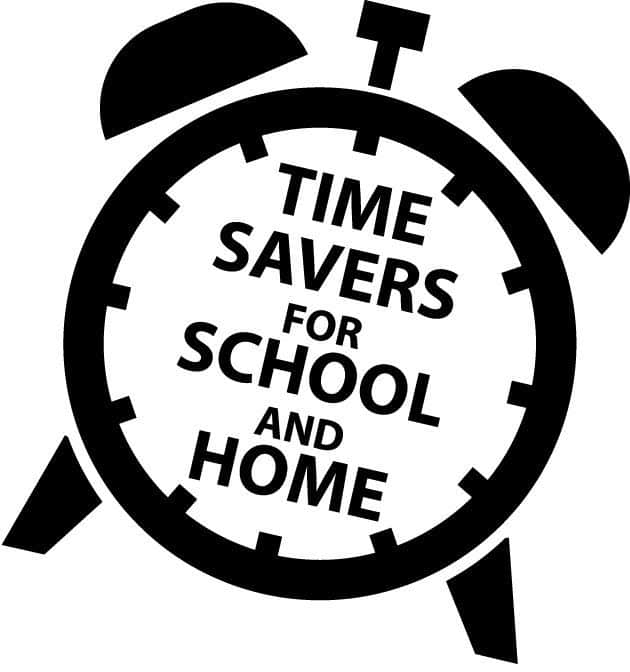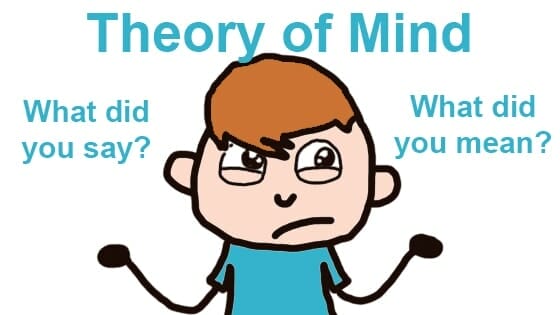Sue Larkey Blog
Helping you “Make a Difference”


Tips, Strategies, Time Savers and Inspiration to help make difference for a child with an ASD in your class, home or community.
Complete Sue Larkey Term 1 2019 Newsletter
Making it a Success in 2019 What you will learn 29 Ways for Teacher Assistants to Support Students pg 2 7 Considerations for Supporting Students pg 4 School Camps & Excursions pg 5 Individual Education Plans (IEPs) 3 Steps for Success pgs 7 -9 Managing Screen Time pg 11 Using Token Reward pg 13 Why I love the term 'Neurodiversity' pg 14 NEW Online Course - Developing Early Childhood Approaches for Children with Additional Needs pg 15 Strategies for Making Learning Fun pg 16 13 Key Strategies to Setting Up Your Classroom pg 17 18 Ways to Set Up a Classroom Top Tips for Using Time Timers pg 20 Minimising Stress Around Timers pg 23 Why you Need to Know about Interoception and the Impact on the Kids you Know pg 24 Top 10 Tips for Toilet Training pg 26 Recommended Resources pg 27 Sensory Tools pg 29 Online Accredited Courses - Term 1 Course starts Feb 25th pg 30 Upcoming Workshops pg...
Ideas to Help You Set Up Your Classroom for Success
13 KEY STRATEGIES TO SETTINGUP YOUR CLASSROOM Subscribe to this podcast via your favourite app Join my newsletter for more awesome information about ASD Strategies 1-7 1. Position in classroom (Seating, mat time, assembly, parades)- have a set position for the student which takes into account: Who they are next to Where in the room or group How close they are to teacher Distractions Whether they are too close to favourite activities like books, computers, Lego etc. Sensory distractions (noises, smells, lighting, objects hanging too close). Some students prefer to be near a door so they can leave if anxiety is building (particularly in secondary). 2. BAGS/LOCKERS/TOTE BOXES Ensure these students are at the quiet end of the row. Students often don’t like being touched, feeling crowded or the noise that happens in the busy areas. 3. Writing 60% of students with ASD have dysgraphia. Students often don’t like being touched, feeling crowded or the noise that happens in the busy areas....
Christmas and Holiday Tips
14 TIPS FOR CHRISTMAS / HOLIDAY SEASONSocial Scripts are great to use at Christmas to explain traditions, and expectations (i.e. thank for present even if you already have, don’t like etc) Check my blog for tips on how to write ScriptsOften children give out cards to each other at schools, this is an important part of 'friendships' in schools. Help your child take part in card giving if it is part of the school 'culture.' I find using the class photo is a great visual to support with the selection of who to make cards for etc.Some Classes do a class Kris Kringle. If they have to buy a gift for another child, this is a great opportunity to talk about how to choose a gift for someone else i.e. “what other people like” how to ask people what they like or observe them etc.Use a Calendar to indicate any changes in routines, concerts, presentations, visitors, shopping, haircuts etcYoutube can be a good place to look at Christmas Traditions – i.e. look at Christmas Morning Routine,...
Q and A from Podcast Listeners
Subscribe to my podcast via my podcast page to get weekly episodes about ASD just like this one delivered automatically to where ever you listen to podcasts. This blog post is a Q and A session based on questions sent in from my podcast listeners.Thank you for everyone who have sent in questions for me after listening to the podcast. I'm really excited to get all your feedback and hear how much you're all enjoying the podcast. I know some of you are listening in the car on the way to work or someone told me they listened in the staff room the other day, so it's just fantastic. Thanks so much for listening. I'd love if you're enjoying the podcast to make sure you leave a review on whichever platform you're using because the more reviews we get the more people who find it and the biggest difference we can make. So I always think sharing is caring so the more people you can share this podcast with the better. So I really appreciate your support.So my first question comes...
Top Tips for Toilet Training
Subscribe to my podcast via my podcast page to get weekly episodes about ASD just like this one delivered automatically to where ever you listen to podcasts. Tips for Toileting (easy to Print Version below) Toilet training your child is a big task even for neuro-typical children. Parents often procrastinate over when to start and we keep delaying it for whatever reason we can think of! My biggest concern for children with ASD is if they are not out of nappies by five years of age then they often start to lose muscle control and can end up with long term bowel and bladder issues. Toileting is not something that the child will grow into or get better with age. We all need to action ASAP – and this includes schools. If a child is attending pre-school or school when the parents are toilet training then we all need to get behind the toileting programme and provide consistency all day every day until the child has mastered it. When to Start Toilet Training Signs of readiness...
End of Year Strategies, Tips and Resources Magazine
What you read about in this Magazine 14 Tips for Christmas/Holiday Season 8 Beautiful Picture Books to Promote Understanding 11 Ideas How to Use Liquid Timers to Teach Calm & Motivate Sue Larkey’s Recommended Holiday Reading 4 Amazing Books for Teaching about Emotions this Summer 6 Key Strategies for Creating a Calming Area at School & Home 4 Beautiful Books to Help Regulate Emotions 12 Essential Tips Concerts & End of Year Celebrations Recommended Great Stocking Fillers Using Timer = Reducing Anxiety = Improved Behaviour = EVERYONE CALMER Click here to go to resources page with magazine
Tips for Transitioning in 2019 – Start Planning Now
Transition includes change in teacher, change in room, change in students in the class not just starting preschool, school, high school and beyond. The nature of ASD is such that transition can be extremely stressful, no matter what age or how BIG or SMALL the change maybe. Changing Teacher is like…. Moving to a Foreign Country For the child with an Autism Spectrum Disorder (ASD) moving to a new teacher, classroom or campus is like moving to foreign country. There is a different language (eg one teacher says ‘pack away’, new teacher says ‘clean up’). Teachers and other students have different facial expressions and body language to interpret, new rules, new schedules, new smells, different pencils just to mention a few changes. This new ‘foreign country’ causes the child to feel enormous anxiety and stress, which in turn can lead to behaviour. This anxiety and behaviour can be managed by effective planning and transition strategies. This article aims to...
Three Stages of a Meltdown & What You Can Do About It
Subscribe to this podcast via your favourite app Managing meltdowns is very important. I believe the key is getting in early and putting in place strategies before the behaviour escalates. You will need a range of strategies to prevent the meltdown escalating. For some students strategies that may help include: ignoring, distracting, redirecting, send on an errand, and more. Understanding the Three Stages of a Meltdown will make it easier to identify and apply strategies to prevent. Click This Link for Easy to Read and Print Page >> Managing_Meltdowns Managing Meltdowns Managing meltdowns is very important. I believe the key is getting in early and putting in place strategies before the behaviour escalates. You will need a range of strategies to prevent the meltdown escalating. For some students strategies that may help include: ignoring, distracting, redirecting, send on an errand, and more. Three Stages of a Meltdown 1. Build Up It may look like: · Walking in a...
Theory of Mind
Many people on the autism spectrum have difficulty with social skills as they are not logical – rules change, games change, people are your friend one day but not the next and children use language and phrases that can be confusing. In addition not being able to predict what people mean and understanding the context of a social situation can make social situations very frustrating. This is called ‘Theory of Mind’. Most children can pass a Theory of Mind test by age three, whereas most people with ASD have an impaired Theory of Mind. 'Theory of Mind is the ability to recognise and understand thoughts, beliefs, desires and intentions of other people in order to make sense of their behaviour and predict what they are going to do next. It has also been described as ‘mind reading’ or ‘mind blindness’. (Pg 112 ‘The Complete Guide to Asperger’s Syndrome’ by Dr Tony Attwood) Signs of an Impaired Theory of Mind Problems with explaining own behaviors Problems with understanding emotions...
Successful Strategies / Adjustments for Tests and Exams
Exam time and tests are often a very difficult time for students with ASD. Their anxiety, fear of failure, perfectionism and learning style often makes this a highly stressful time for everyone. In my experience often their longer processing time makes it difficult to read a question and then figure out what it really means. They may also perseverate (become stuck and not move on) on a question that they don't know. Some students have difficulty explaining their 'thinking' and just put the answers rather than showing their 'working out'. It's important we put in place appropriate procedures /adjustments so that students can perform at their best in tests & exams. In my experience the more practise students have with exams and tests the better we can prepare them. By doing practice tests and past papers we can become aware of the adjustments needed to support the students to ensure the best outcomes. One of the most important considerations when testing students with ASD is to...
Executive Functioning: The Brain’s Air Traffic Control (Episode 5)
Executive Functioning: The Brain's Air Traffic Control Learn about Executive Functioning Now! Have you ever watched planes taking off and landing at a busy airport and wondered how air traffic controllers manage it all? Now, imagine a similar system in your brain, managing thoughts, emotions, and actions. That's executive functioning for you! Subscribe to my podcast via my podcast page to get weekly episodes about ASD just like this one delivered automatically to where ever you listen to podcasts.What I Wish I Knew YEARS AgoThe one thing I wish I knew YEARS ago was the IMPORTANCE of executive functioning and HOW to improve it as it underpins everything from behaviour to social to engagement. Executive functioning refers to the part of your brain that organises, prioritises and regulates emotions. However, I prefer to refer to it as the 'Air Traffic Control,' as just like air traffic control has to manage thousands of planes on countless runways with perfect timing, students have...
Promoting Social Understanding – Social Scripts
Social Scripts Subscribe to my podcast via my podcast page to get weekly episodes about ASD just like this one delivered automatically to where ever you listen to podcasts. Friendship, play and social interaction are all two-way - and we need to support both the child with ASD and their peers to make social skills programmes work. Using social scripts to teach children with ASD, ADHD, ODD and PDA how to engage socially can be a great strategy to improve understanding of events and situations. Social scripts describe a social situation, skill or concept. The goal of a social script is to promote true social understanding. For example, I taught a Year 1 girl who wasn't doing her work, constantly getting frustrated and not staying at her seat. It turned out she didn't know how OR when to ask for help. Creating a social script to explain the concept of 'asking for help', significantly changed this child's ability complete work. Other students seem to learn these concepts without...











